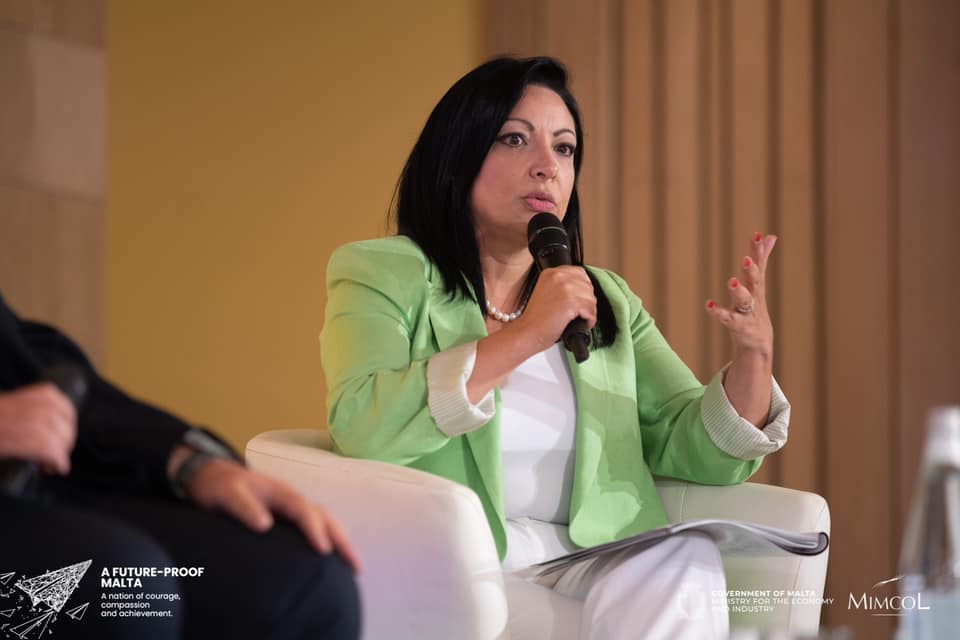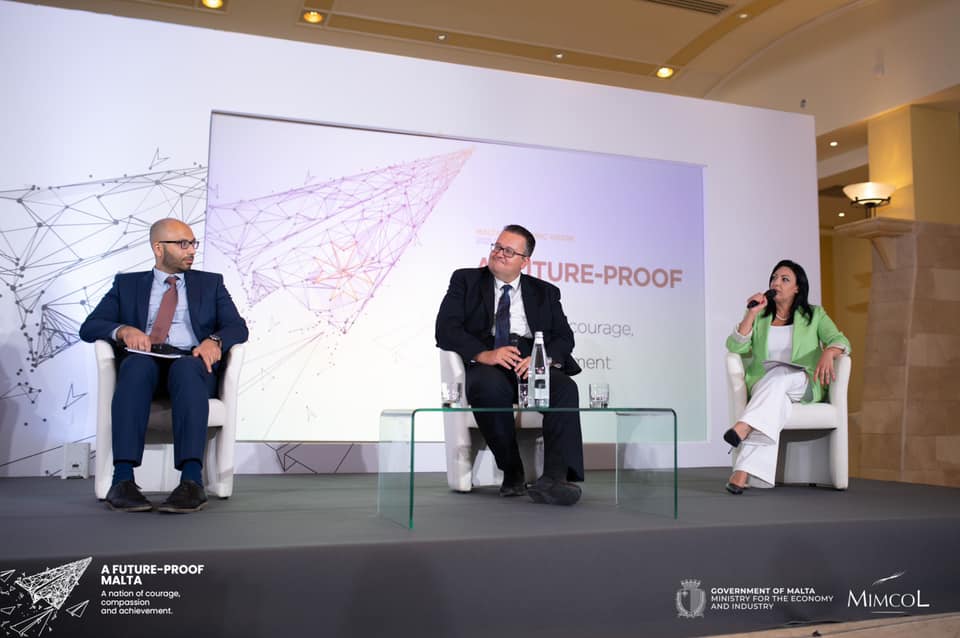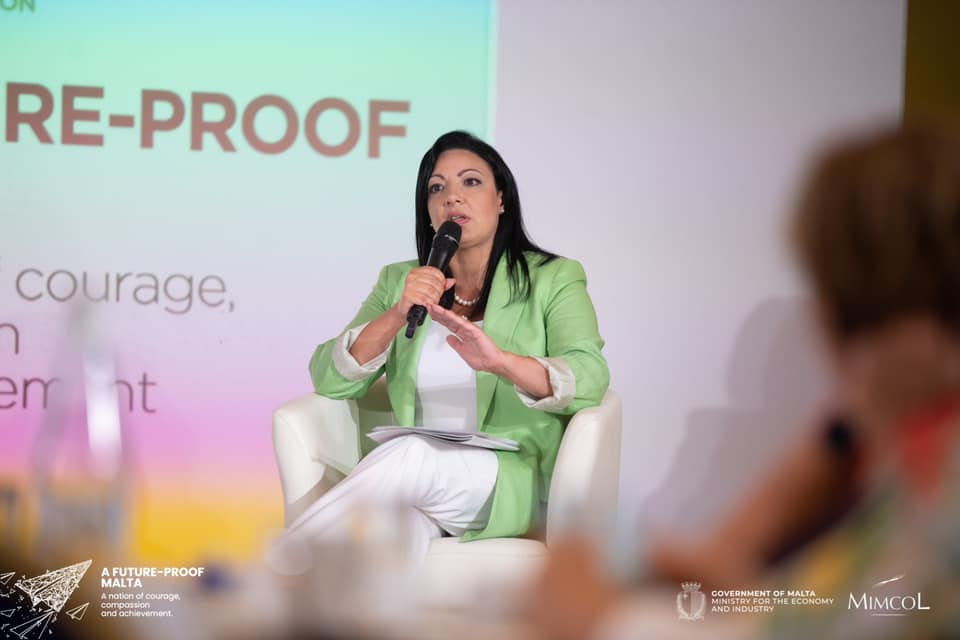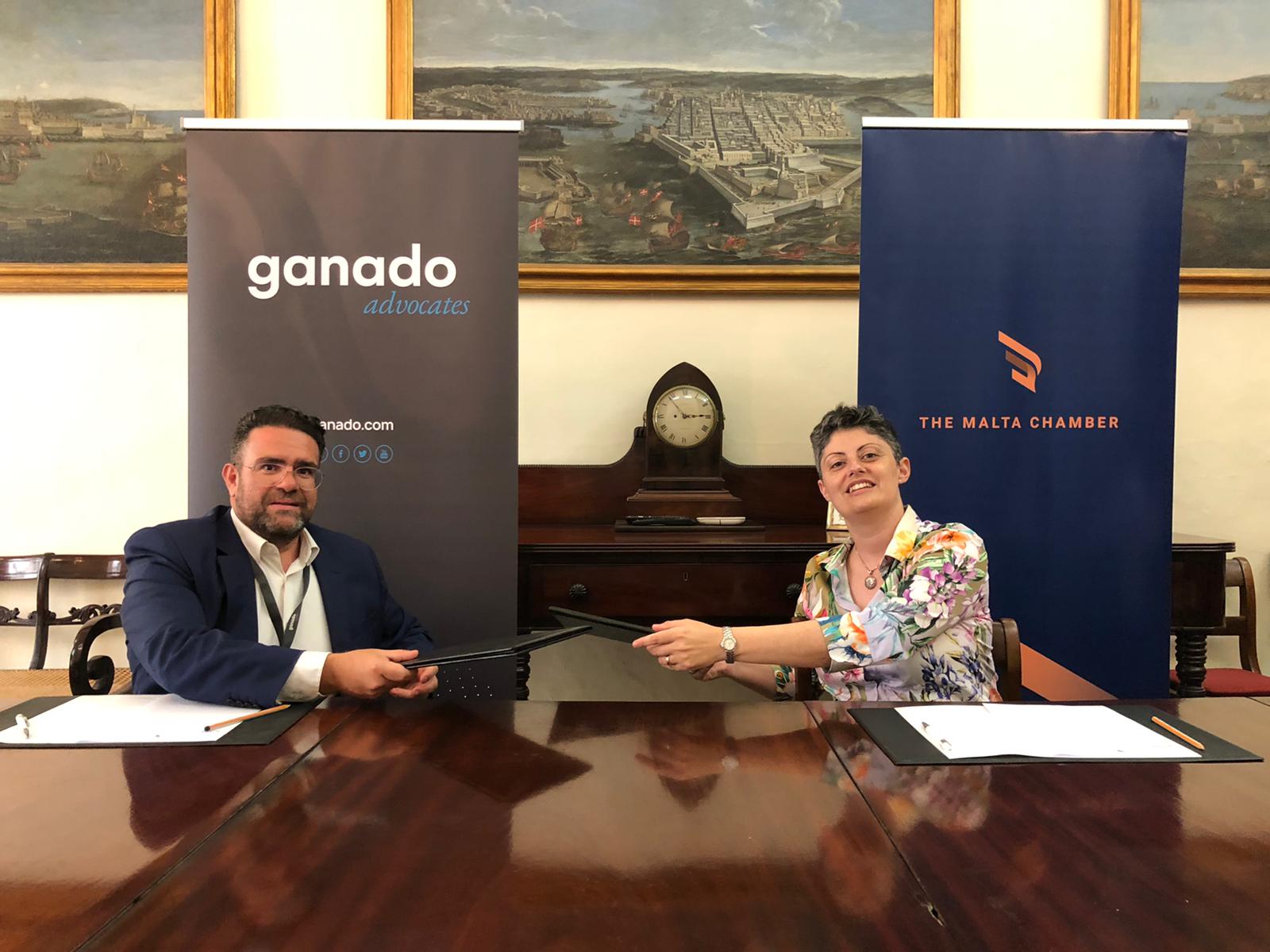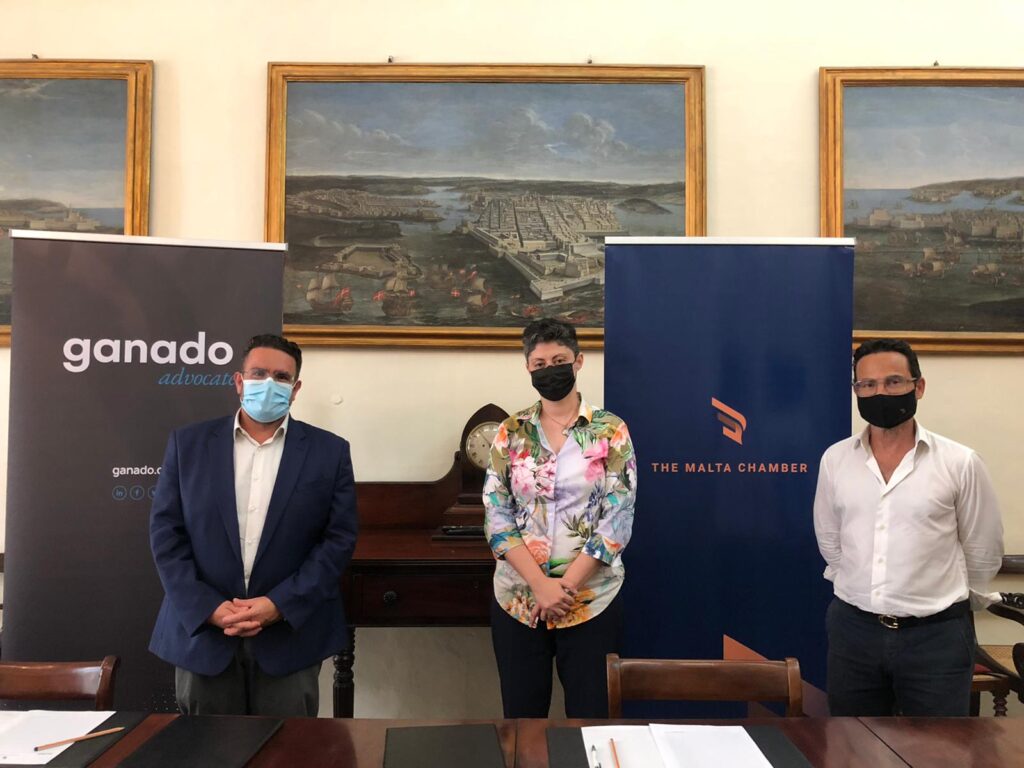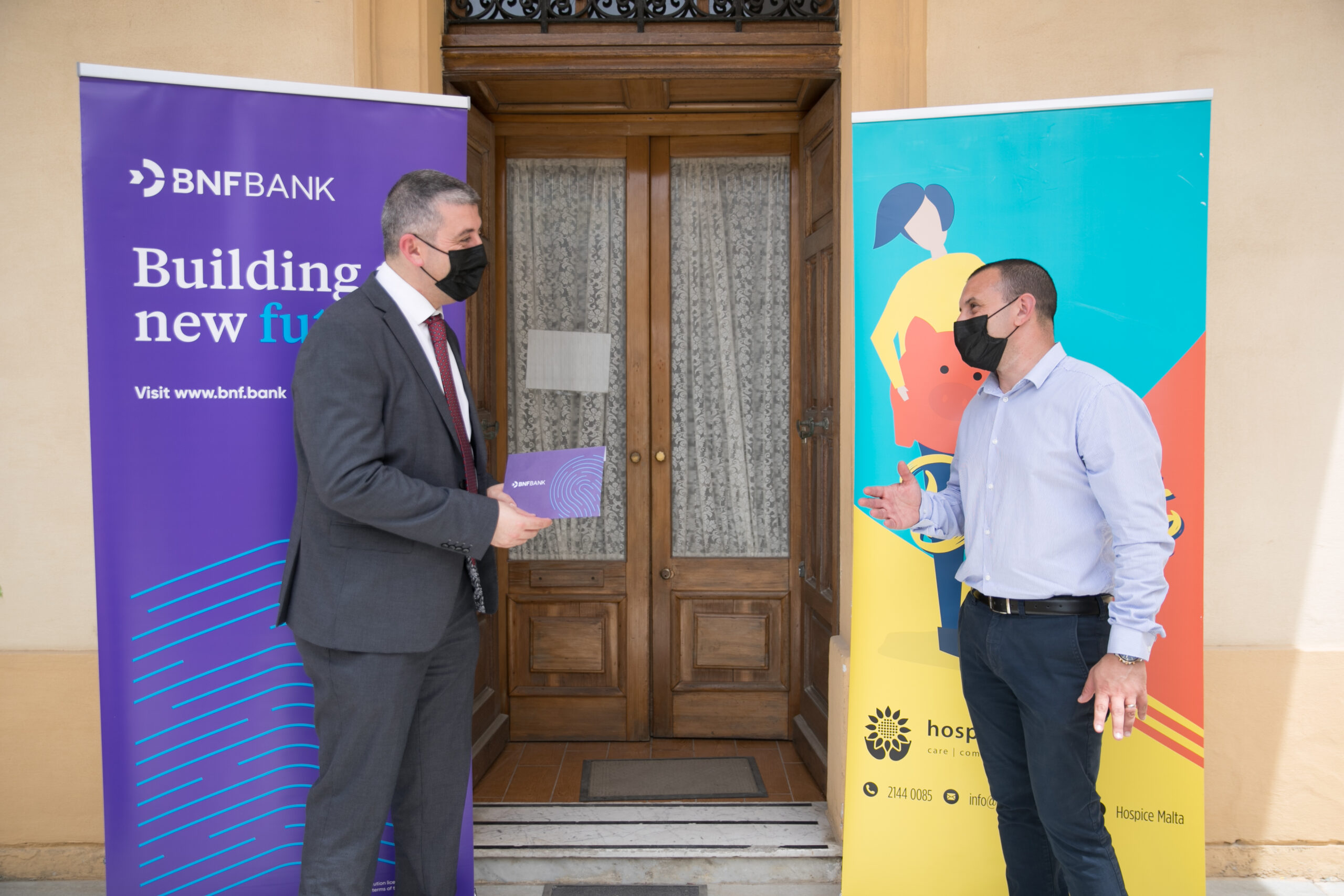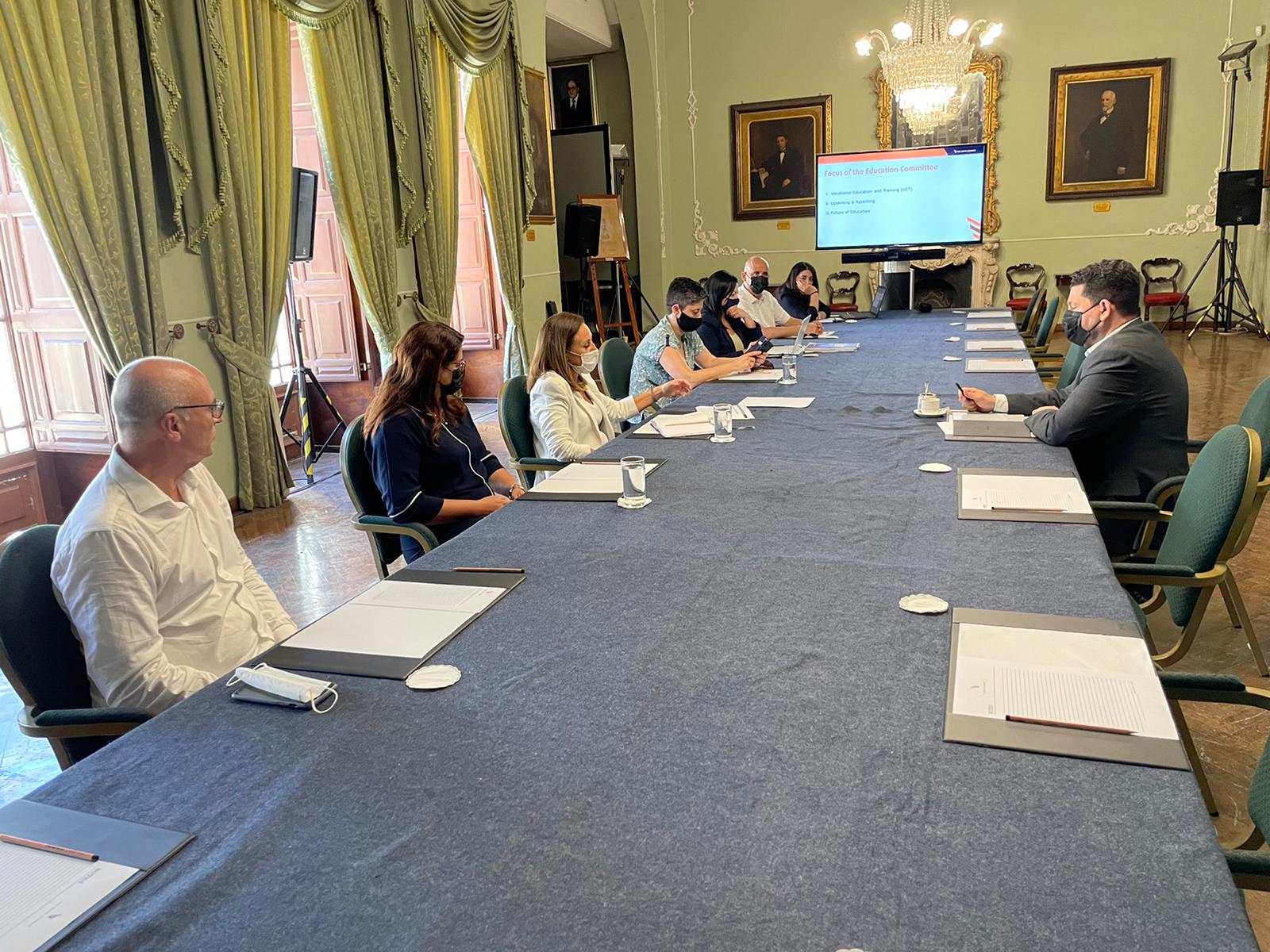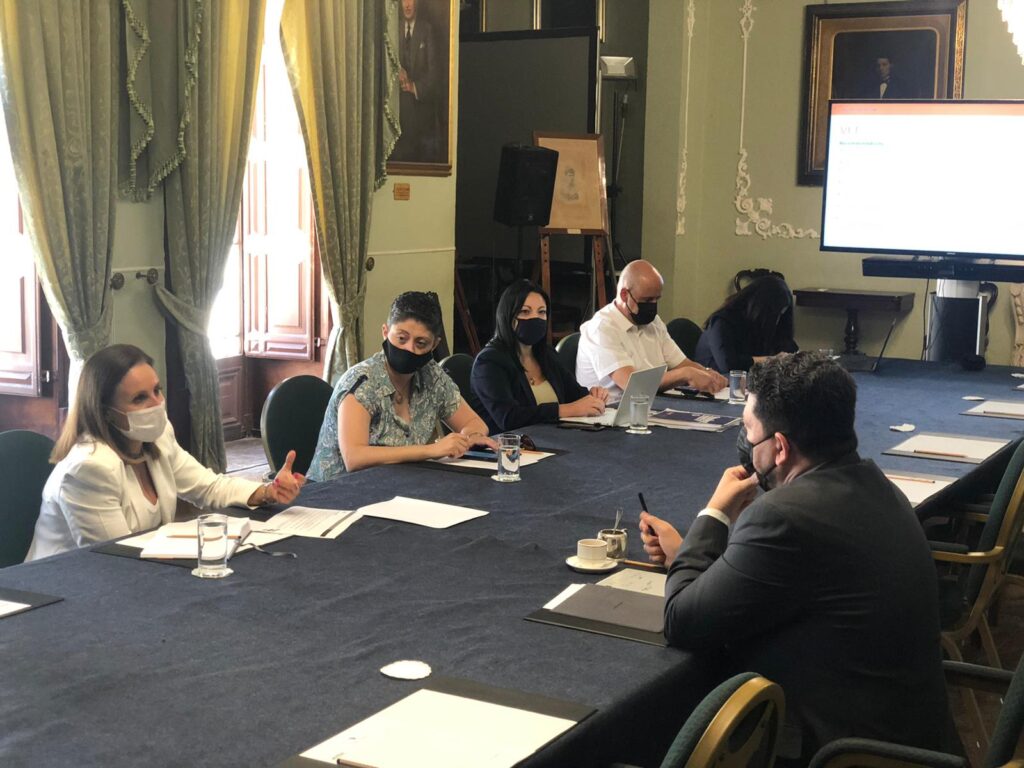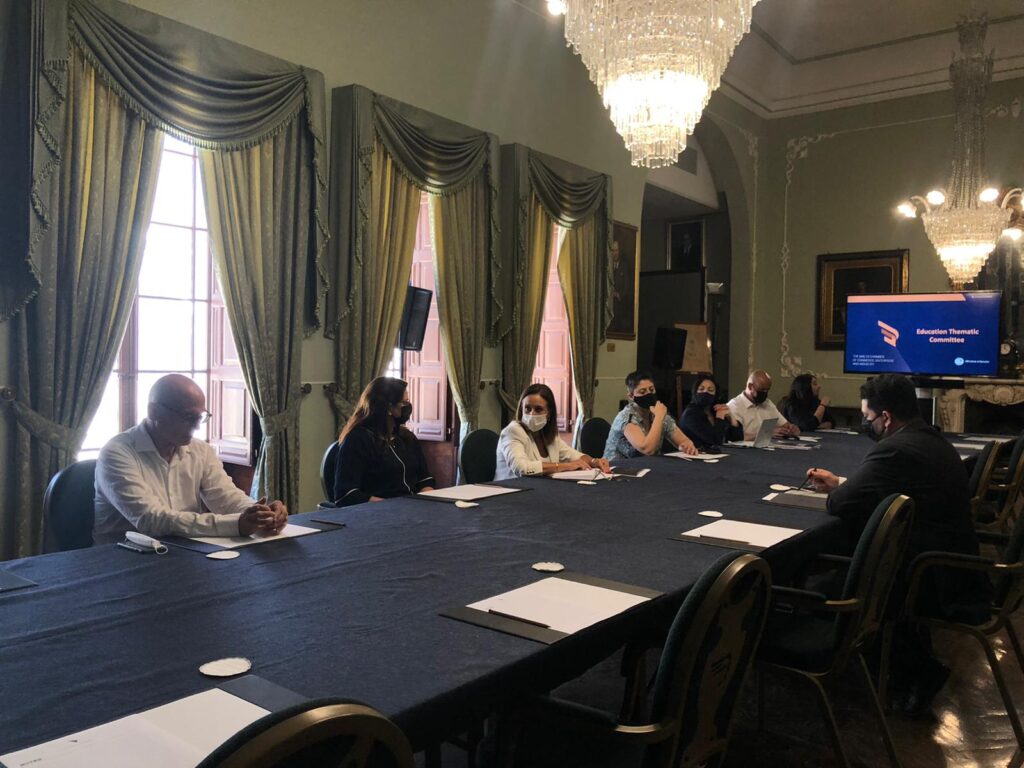During a panel discussion at a seminar organised by the Ministry for the Economy and Industry together with MIMCOL, Dr Marthese Portelli, CEO of the Malta Chamber of Commerce, Enterprise and Industry weighed in on the importance of sustainable economic growth for a future-proof Malta.
Addressing attendees during the ‘Malta’s Economic Vision 2021 – 2031 National Consultation for Pillar 1 – Sustainable Economic Growth’, Dr Portelli noted that the Vision reflects and is in sync with The Malta Chamber’s Smart & Sustainability document and Think Tank proposals. “The Vision’s thought process is holistic and positive, particularly the drive towards innovation over quick fixes. The Malta Chamber reiterates the importance of coherence throughout and across government ministries, authorities and departments. The secret of the Vision’s success depends on effective implementation and therefore it is crucial to develop it together with industry and business stakeholders.” said the CEO.
Dr Portelli highlighted 9 key action points that must be prioritised for a sustainable way forward:
1. Targets must be realistic.
2. Address our export propensity from an island microstate perspective, particularly by addressing our insular economic hurdles even at European and international fora.
3. Ensure continuous dialogue with business stakeholders to avoid knee jerk reactions which disrupt business stability.
4. Bottom-up tailor-made incentives per industry which are designed effectively to address the sector’s requirements, rather than a one-size-fits-all.
5. Identify industries that generate real value added towards our country and help them to proliferate.
6. Give due recognition to industries and businesses that contribute positively towards attaining a sustainable environment and promote their corporate best practices for wider uptake.
7. Create required inhouse training schemes to address the issue of industry and skills availability mismatch.
8. Better awareness of industry career opportunities during career guidance campaigns. This is crucial for industries to grow and expand as it will provide qualitative employment prospects and also serve to bridge the industry needs with educational readiness.
9. Ensuring that everyone has digital knowledge, digital literacy and analytical competence which goes beyond basic skills and basic use. We need to move towards data-powered enterprise that will help scale new business and reimagine consumer engagement models.
Dr Portelli concluded by saying that as a nation the country is at a very important juncture and called for political maturity in politics. “Political Maturity is not just desirable – it is vital. Beyond mere words, we need to see it actually happening and being put into practice.”
